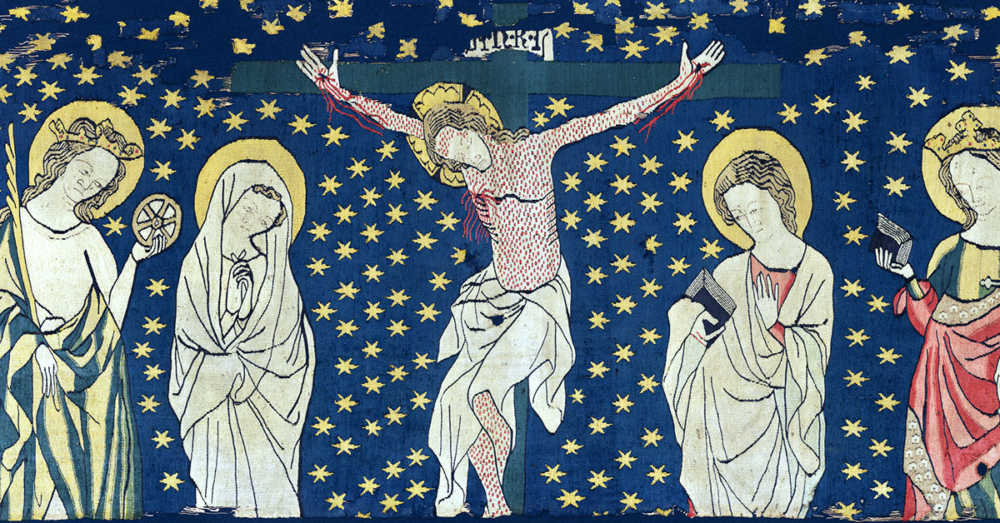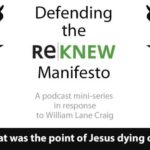We run our website the way we wished the whole internet worked: we provide high quality original content with no ads. We are funded solely by your direct support. Please consider supporting this project.

Why Did Jesus Cry Out that God Had Forsaken Him?
At the climax of Jesus’ suffering on the cross, Jesus cries out: “My God, my God, why have you forsaken me?” (Mt 27:46) It’s a jarring moment in the narrative. To forsake is to abandon. Did Jesus really believe that God had abandoned him? Was Jesus right about this? If he was right, what does that say about God? If he was wrong, what does that say about his connection with the father (about his standing within the trinity)?
Jesus had committed himself to doing the Father’s will, even though he anticipated it would involve a cup of great suffering (Mt 26:39). Paul tells us that, on the cross, “God made him who had no sin to be sin for us” (2 Cor 5:21). This means that, on Calvary, the all-holy God was totally saturated in our sin! Not only that, but Paul also teaches that, on the cross, “Christ redeemed us from the curse of the law by becoming a curse for us” (Gal 3:13). One who is cursed is estranged from God, which is why, when Jesus took on with our cursed state, he cried out: “My God, my God, why have you forsaken me?” (Mt 27:46). Jesus experienced the separation from God that we deserved, while experiencing abandonment on an infinitely more profound level than we could ever experience. And this means that, on Calvary, God, whose very nature is the perfect, loving union of Father, Son and Spirit, experienced the profound disruption of our God-forsakenness.
Yes, Jesus was abandoned, but the abandonment was a momentary horror that Jesus offered himself into. Furthermore, it was a rupture that overthrew Satan (1 John 3:8), and established our salvation (Hebrews 9:27-28). It was, to summarize, the greatest possible act of love.
Category: General
Tags: Cross, Crucifixion, The Cross
Verse: Matthew 27
Related Reading

Podcast: Defending the Manifesto (7 of 10)
Greg responds to challenges by William Lane Craig from Craig’s podcast “Reasonable Faith.“ Greg discusses atonement and the shortcomings of penal substitution theology. http://traffic.libsyn.com/askgregboyd/Episode_0062.mp3

A Cruciform Dialectic
One of the most important aspects of God’s action on Calvary, I believe, is this: God revealed himself not just by acting toward humans, but by allowing himself to be acted on by humans as well as the fallen Powers. God certainly took the initiative in devising the plan of salvation that included the Son…

Avoiding the “S” Word: Sin
In our culture today, we don’t like to talk about sin. While most of us have a deep sense that something is off, that something is wrong with ourselves and the world, and many know or feel that they are guilty of something, this kind of talk is avoided. Instead, we evaluate ourselves by our…

Was Jesus Abandoned by the Father on the Cross?
As Jesus hung on the cross, he cried, “Eli, Eli, lema sabachthani?” (Mt 27:46). This is the cry of our God who stooped to the furthest possible depths to experience his own antithesis, as the all-holy God becomes the sin of the world (2 Cor 5:21) and the perfectly united God becomes the curse of…

Podcast: Does the Resurrection Diminish the Sacrifice of Jesus?
Greg discusses God’s sacrifice, the nature of separation from God, and shares a powerful story from his time in Cambodia, and offers this as an analogy for Christ’s inner sacrifice. http://traffic.libsyn.com/askgregboyd/Episode_0155.mp3

Why Did Jesus Die on the Cross?
If asked why Jesus had to die on the cross, most Christians today would immediately answer, “To pay for my sins.” Jesus certainly paid the price for our sins, but it might surprise some reader to learn that this wasn’t the way Christians would answer this question for the first thousand years of Church history.…
